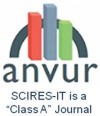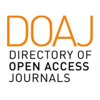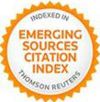Abstract
Since the Italian research evaluation system is based on an administrative agency that is in control of all the facets of academic life, it would be easy to add an OS mandate to the researchers’ duties. But, if we conceive OS as a philosophical ideal of human emancipation through the opening of scholarly conversation rather than a management model, we have to ask: why does open science, today, need to be mandated? But, above all, can it be mandated? A Kantian thought experiment will help us to show that: (1) OS needs to be mandated because, against the spirit of the modern science revolution, it is not open any longer; (2) the very submission of research to blueprints dictated by an administrative authority reduces it to a bureaucratic, commodified enterprise whose horizon is not the advancement of learning - or discoveries and revolutions yet to do - but the production of information and data whose goal is determined by economic and political powers rather than by the will to knowledge.
Keywords
Full Text:
PDFDOI: http://dx.doi.org/10.2423/i22394303v10Sp35
References
Adendorff, L. (2010). Italy: University reform bill passes amid protests. University World News. Retrieved from https://www.universityworldnews.com/post.php?story=20101202200420174
Anderson, R. (2010). European Universities from the Enlightenment to 1914. Retrieved from https://www.oxfordscholarship.com/view/10.1093/acprof:oso/9780198206606.001.0001/acprof-9780198206606-chapter-4
Baccini, A., & De Nicolao, G. (2018). How pseudoscientific rankings are distorting research. Institute for New Economic Thinking. Retrieved from https://www.ineteconomics.org/perspectives/blog/how-pseudoscientific-rankings-are-distorting-research
Baccini, A., Nicolao, G. D., & Petrovich, E. (2019). Citation gaming induced by bibliometric evaluation: A country-level comparative analysis. PLOS ONE, 14(9). Retrieved from. https://doi.org/10.1371/journal.pone.0221212
Belluz, J. (2018). 20 years ago, research fraud catalyzed the anti-vaccination movement. Let’s not repeat history. Retrieved from Vox website: https://www.vox.com/2018/2/27/17057990/andrew-wakefield-vaccines-autism-study
Biagioli, M. (2016). Watch out for cheats in citation game. Nature. Retrieved from http://www.nature.com/news/watch-out-for-cheats-in-citation-game-1.20246
Biagioli, M. (2018). Quality to Impact, Text to Metadata: Publication and Evaluation in the Age of Metrics. KNOW: A Journal on the Formation of Knowledge, 2(2), 249–275. Retrieved from https://www.journals.uchicago.edu/doi/10.1086/699152
Bonaccorsi, A. (2015). La valutazione possibile. Teoria e pratica nel mondo della ricerca. (Bologna): Il Mulino.
Bonaccorsi, A. (Ed.). (2018a). The Evaluation of Research in Social Sciences and Humanities: Lessons from the Italian Experience. Cham: Springer.
Bonaccorsi, A. (Ed.). (2018b). Towards an Epistemic Approach to Evaluation in SSH. In The evaluation of research in social sciences and humanities: Lessons from the italian experience. Cham: Springer.
Briggs, W. M. (2011). The sorites paradox isn’t. Retrieved from https://wmbriggs.com/post/3578
Budapest Open Access Initiative. (2002). Retrieved from https://www.budapestopenaccessinitiative.org/read
Buranyi, S. (2017). Is the Staggeringly Profitable Business of Scientific Publishing Bad for Science? The Guardian. Retrieved from http://www.theguardian.com/science/2017/jun/27/profitable-business-scientific-publishing-bad-for-science
Caso, R. (2017a). Perché l’ANVUR è ancora in vita? Bollettino telematico di filosofia politica. Retrieved from https://btfp.sp.unipi.it/it/2017/06/anvurcaso/
Caso, R. (2017b). Una valutazione (della ricerca) dal volto umano: La missione impossibile di Andrea Bonaccorsi. Retrieved from https://doi.org/10.5281/zenodo.375968
Chan, L., Okune, A., Hill, R., Albornoz, D., & Posada, A. (Eds.). (2019). Contextualizing Openness: Situating Open Science. University of Ottawa Press IDRC - International Development Research Centre.
Chomsky-Foucault : « Justice contre pouvoir ». (2007). Le Monde Diplomatique. Retrieved from https://www.monde-diplomatique.fr/2007/08/A/15053
Cole, S. (1992). Making science : Between nature and society. Cambridge (Mass.): Harvard U.P.
Creagh, S. (2011). Journal rankings ditched: The experts respond. The Conversation.
Csiszar, A. (2016). Peer review: Troubled from the start. Nature. Retrieved from https://www.nature.com/news/peer-%20review-%20troubled-%20from-%20the-%20start-%201.19763
David, P. (2007). The historical origins of ’open science’. Retrieved from https://pdfs.semanticscholar.org/2948/0da8855b61022f0e0a9fb5808444f428af08.pdf
Edwards, M. A., & Roy, S. (2016). Academic Research in the 21st Century: Maintaining Scientific Integrity in a Climate of Perverse Incentives and Hypercompetition. Environmental Engineering Science. https://doi.org/10.1089/ees.2016.0223
European Universities Association. (2009). Europe’s responses to economic crisis. University World News. Retrieved from https://www.universityworldnews.com/post.php?story=20090220085540843
Feynman, R. (1966). What is science? Retrieved from http://www.feynman.com/science/what-is-science
Figà-Talamanca, A. (2002). The "impact factor" in the evaluation of research. Bulletin Du Groupement International Pour La Recherche Scientifique En Stomatologie & Odontologie, 44(1). Retrieved from http://revistes.ub.edu/index.php/bullgirso/article/view/5926
Finley, M. (1982). La democrazia antichi e dei moderni. Roma-Bari: Laterza.
Fire, M., & Guestrin, C. (2019). Over-optimization of academic publishing metrics: Observing Goodhart’s Law in action. GigaScience, 8(6). https://doi.org/10.1093/gigascience/giz053
Fitzpatrick, K. (2011). Planned obsolescence: Publishing, technology and the future of academia. Retrieved from http://mcpress.media-commons.org/plannedobsolescence/
Flaherty, C. (2015). The Costs of Publish or Perish. Inside Higher Education. Retrieved from https://www.insidehighered.com/news/2015/10/12/study-suggests-pressure-publish-impedes-innovation
Galilei, G. (1610). Lettera a Belisario Vinta. Retrieved from https://www.fondazionesancarlo.it/wp-content/uploads/2012/10/Bucciantini.pdf#page=30
Guédon, J.-C. (2001). In Oldenburg’s Long Shadow. Librarians, Research Scientists, Publishers, and the Control of Scientific Publishing. Retrieved from https://www.arl.org/wp-content/uploads/2001/12/in-oldenburgs-long-shadow.pdf
Guédon, J.-C. (2017). Open access - toward the internet of the mind. Retrieved from https://www.budapestopenaccessinitiative.org/boai15/Untitleddocument.docx
Hagner, M. (2018). Open access, data capitalism and academic publishing. Swiss Medical Weekly, 148(14600). https://doi.org/10.4414/smw.2018.14600
Harnad, S. (2003). Back to the oral tradition through skywriting at the speed of thought (Ranimer la tradition orale par la ciélographie à la vélocité de l’esprit). Les défis de la publication sur le web: Hyperlectures, cybertextes et méta-editions. Retrieved from https://halshs.archives-ouvertes.fr/sic_00000315/
Holmwood, J. (2013). Markets versus dialogue: The debate over open access ignores competing philosophies of openness. LSE Impact Blog. Retrieved from https://blogs.lse.ac.uk/impactofsocialsciences/2013/10/21/markets-versus-dialogue/
Humboldt, W. von. (2010). Über die innere und äussere Organisation der höheren wissenschaſtlichen Anstalten in Berlin (C. Markschies, Ed.). https://doi.org/10.18452/4653
Huxley, A. (1958). Brave new world revisited. Retrieved from http://www.huxley.net/bnw-revisited/
Johns, A. (2009). Piracy. Chicago: The University of Chicago Press.
Kant, I. (1784). Beantwortung der Frage: Was ist Aufklärung? Retrieved from http://korpora.org/Kant/aa08/033.html
Kant, I. (1991). Political Writings (H. Reiss, Ed.; H. Nisbet, Trans.). Cambridge: Cambridge University Press.
Konrad, F.-M. (2012). Wilhelm von Humboldt’s contribution to a theory of Bildung. In P. Siljander, A. Kivelä, & A. Sutinen (Eds.), Theories of Bildung and Growth: Connections and Controversies Between Continental Educational Thinking and American Pragmatism. Rotterdam, Boston, Taipei: SensePublishers.
Lanier, J. (2010). You are not a gadget. Retrieved from http://btfp.sp.unipi.it/?p=2842
Larivière, V., Haustein, S., & Mongeon, P. (2015). The Oligopoly of Academic Publishers in the Digital Era. PLOS ONE, 10. https://doi.org/10.1371/journal.pone.0127502
Leslie, I. (2016). The sugar conspiracy | Ian Leslie. The Guardian.
Lévy, P. (1997). L’universel sans totalité, essence de la cyberculture. Retrieved from http://www.ub.edu/prometheus21/articulos/obsciberprome/pierreluniversel.pdf
MacKie-Mason, J. (2018). Why force the OA transition now? An economist’s view. Retrieved from https://oa2020.org/wp-content/uploads/pdfs/B14-04-Jeffrey-MacKie-Mason.pdf
Markin, P. (2018). Preprint Repositories Gain in Institutional Legitimacy and Recognition, Reduce the Attractiveness of Subscription Journals. Retrieved from https://is.gd/oz6LVo
Mazzotti, M. (2012). Listing wildly. Times Higher Education. Retrieved from https://www.timeshighereducation.com/features/listing-wildly/421723.article?storycode=421723
Merton, R. K. (1941). Znaniecki’s "The Social Role of the Man of Knowledge".
Merton, R. K. (1942). The Normative Structure of Science. Retrieved from https://www.collier.sts.vt.edu/5424/pdfs/merton_1973.pdf
Merton, R. K. (1957). Priorities in Scientific Discovery: A Chapter in the Sociology of Science. Retrieved from http://joelvelasco.net/teaching/3330/Merton%20Priorities%20in%20Science%201957.pdf
Merton, R. K. (1968). Behavior Patterns of Scientists. Retrieved from http://www.dcscience.net/merton-behavior-patterns-of-scientists-1968.pdf
Merton, R. K. (1973a). The Puritan Spur to Science. In N. W. Storer (Ed.), The Sociology of Science. Theoretical and Empirical Investigations (pp. 228–253). Retrieved from https://archive.org/details/robert_K_merton_the_sociology_of_science
Merton, R. K. (1973b). The Sociology of Science. Theoretical and Empirical Investigations (N. W. Storer, Ed.). Retrieved from https://archive.org/details/robert_K_merton_the_sociology_of_science
Moriarty, P. (2008). Reclaiming Academia from Post-Academia. Nature Nanotechnology, 3(2), 60–62. https://doi.org/10.1038/nnano.2008.11
Moscon, V. (2013). Open Access to Scientific Articles: Comparing Italian with German law. Retrieved from http://copyrightblog.kluweriplaw.com/2013/12/03/open-access-to-scientific-articles-comparing-italian-with-german-law/
Neeson, C. R. (2019). A Declaration of the Mission of University in Barlowspace. Retrieved from https://scholarship.law.duke.edu/cgi/viewcontent.cgi?article=1350&context=dltr
Pievatolo, M. C. (2006). «Friends have all things in common»: intellectual property, publishing, and politics. Retrieved from http://doi.org/10.5281/zenodo.51532
Pievatolo, M. C. (2012). Jaron Lanier, You are not a Gadget. Bollettino telematico di filosofia politica. Retrieved from https://btfp.sp.unipi.it/it/2012/10/jaron-lanier-you-are-not-a-gadget/
Pievatolo, M. C. (2017). La bilancia e la spada: scienza di stato e valutazione della ricerca. Bollettino telematico di filosofia politica. Retrieved from https://commentbfp.sp.unipi.it/maria-chiara-pievatolo-la-bilancia-e-la-spada-scienza-di-stato-e-valutazione-della-ricerca/
Pinfield, S., & Rob, J. (2018). Adoption of Open Access Is Rising but so Too Are Its Costs. Retrieved from https://blogs.lse.ac.uk/impactofsocialsciences/2018/01/22/adoption-of-open-access-is-rising-but-so-too-are-its-costs/
Plato. (n.d.). Phaedrus. Retrieved from
http://data.perseus.org/citations/urn:cts:greekLit:tlg0059.tlg012.perseus-grc1:227a
Porter, T. M. (1995). Trust in Numbers: The Pursuit of Objectivity in Science and Public Life (Princeton U.P.). Retrieved from http://www.andreasaltelli.eu/file/repository/Excerpts.pdf
Prodi, P. (2013). Università e città nella storia europea (Il Mulino). Retrieved from http://btfp.sp.unipi.it/dida/humboldt/#idp156368
Radder, H. (2010). The Commodification of Academic Research: Science and the modern university.
Radder, H., Nordmann, A., & Schiemann, G. (Eds.). (2011). Science Transformed? Debating Claims of an Epochal Break. Pittsburgh: University of Pittsburgh Press.
Ravetz, J. R. (2016). How Should We Treat Science’s Growing Pains? The Guardian. Retrieved from http://www.theguardian.com/science/political-science/2016/jun/08/how-should-we-treat-sciences-growing-pains
Redazione JLIS.it. (2012). Italian declaration supporting the Berlin declaration on open access to knowledge in the sciences and humanities (2004). JLIS.it, 3(2). https://doi.org/10.4403/jlis.it-8630
Redazione Roars. (2019). Bibliometric evaluation chokes innovation. But it’s OK because “We are not all Galilei and Newton”. ROARS. Retrieved from https://www.roars.it/online/bibliometric-evaluation-chokes-innovation-but-its-ok-because-we-are-not-all-galilei-and-newton/
Ringer, F. K. (1969). The decline of German Mandarins. Cambridge Mass.: Harvard U.P.
Rossi, P. (2015). La nascita della scienza moderna in Europa. Roma-Bari: Laterza.
Rudwick, M. J. S. (1985). The Great Devonian Controversy: The Shaping of Scientific Knowledge among Gentlemanly Specialists. Retrieved from http://www.math.chalmers.se/~ulfp/Review/devon.pdf
Sample, I. (2012). Harvard University says it can’t afford journal publishers’ prices. The Guardian. Retrieved from https://www.theguardian.com/science/2012/apr/24/harvard-university-journal-publishers-prices
Santosuosso, A., Sellaroli, V., & Fabio, E. (2007). What constitutional protection for freedom of scientific research? Journal of Medical Ethics, 33(6), 342–344. https://doi.org/10.1136/jme.2007.020594
Shirky, C. (2010). The Shock of Inclusion. Edge. Retrieved from https://www.edge.org/response-detail/11609
Smaldino, P. E., & McElreath, R. (2012). The natural selection of bad science. Royal Society Open Science. https://doi.org/10.1098/rsos.160384
SPARC. (2019). Landscape Analysis The Changing Academic Publishing Industry for Academic Institutions. Retrieved from https://sparcopen.org/our-work/landscape-analysis/
Srigley, R. (2018). Whose University Is It Anyway? Los Angeles Review of Books. Retrieved from https://lareviewofbooks.org/article/whose-university-is-it-anyway/
Tennant, J. (2019). “Transformative” Open Access Publishing Deals Are Only Entrenching Commercial Power. Times Higher Education (THE).
Velterop, J. (2016). On the dangers of SciHub and hybrid journals. Retrieved from https://blog.scielo.org/en/2016/03/22/on-the-dangers-of-scihub-and-hybrid-journals/
Weber, M. (1919). Science as a Vocation. Retrieved from http://anthropos-lab.net/wp/wp-content/uploads/2011/12/Weber-Science-as-a-Vocation.pdf
Weinberger, D. (2011). Too Big to Know. Retrieved from https://en.wikipedia.org/wiki/Too_Big_to_Know
Weizenbaum, J. (1976). Computer power and human reason. San Francisco: W. H. Freeman and Company.
Ziman, J. (2000). Real Science: What It Is and What It Means. Cambridge: Cambridge University Press.
Article Metrics
Metrics powered by PLOS ALM
Refbacks
- There are currently no refbacks.
Copyright (c) 2020 Maria Chiara Pievatolo

This work is licensed under a Creative Commons Attribution-NonCommercial-NoDerivatives 4.0 International License.
SCIRES-IT, e-ISSN 2239-4303
Journal founded by Virginia Valzano






